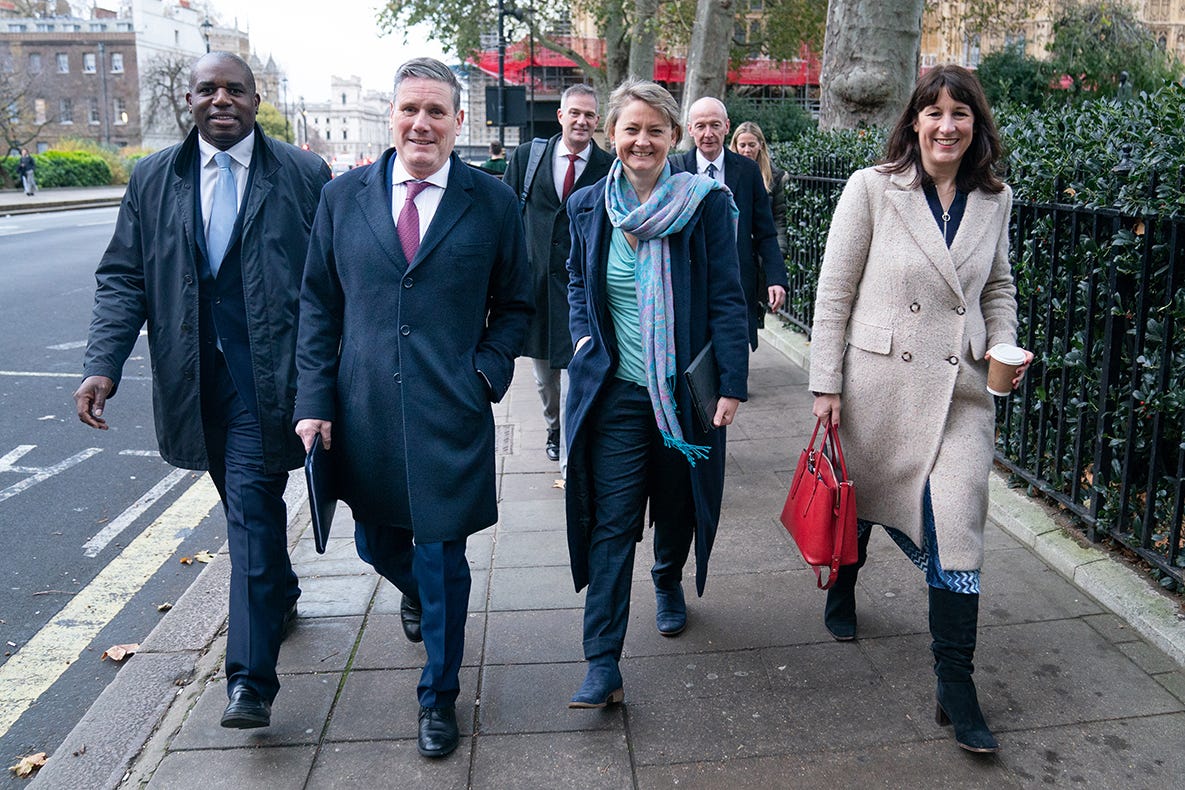Words, they say, matter in politics.
In our dancing-on-the-head-of-a-pin, social-media hyper-scrutinised age, they matter more than ever. Aha, proclaim the AI-enabled, bot-powered, algo-assembled armies, you said “sustainable” and now you say “lasting”. Delete your profile, they demand, spittle-screened, as the word “woman” or “man” are unearthed from decades old descriptions of, let's say, women. Or men. Gotcha, they cry, you said “nationalisation” then but “public” now. These semantic split hairs are supercharged to the tectonic rifts of Twitter. Or X, which is the new word for Twitter, of course.
English is a mutt of a language. These islands have been so frequently invaded, from north and south, from cold and hot, ice and Med, that many of our words have two routes. It’s left us some hilarious Boris-esque dualities of meaning. ‘Sanction’, for instance, means both to allow (from the Norse) and to forbid (the Germanic). If you sanction sanctions, you’re permitting something to be forbidden. Nonsense, sure. But it’s our nonsense so back off.
The word in question here, though, is more relevant to Starmer’s Labour party in the coming months. Wait. For waiting, of course, is not just what they’re doing, but as poll after poll paints a picture, it’s increasingly what they are. A government, assembled, in waiting. All dressed up for their first day of big school, but stood by the red man at the level crossing, checking their watch as the traffic builds up and the rain falls. Wait. Wait.
That word, too, arrived twice on these shores, from the Germanic hordes and the French respectively. The root is the same, but the devil, as ever, is in the detail. Active or passive. Passing the time, or pressuring the situation. The difference is, as the Germans and French say, kreide and fromage.
To lie in wait, a hunter, vigilant, responsive, pressuring the situation. The Germanic, in case you hadn’t guessed. The active. The influential. Versus to simply hibernate while awake, French, the time passing, until something just, bof, happens. This is the difference of which Labour must constantly remind itself.
Consider the current posture of the Labour government in waiting. It can, at best, be described as Alsatian, a Franco-German hybrid, the active and the passive, half pressure, half permissive.
It is not enough simply to say ‘not me, guv, we’re not in power, you want that lot in the blue corner’. No. To remind the electorate of Labour’s impotence is not to impress an urgency to end it. Every day, every moment, Labour must actively agitate for power. Policies, specifics, challenges. Don’t ask for permission, demand attention. Take the meeting. Take all the airtime. The oxygen. The leadership.
We. Are. Here. If only they let us, this would be happening. You’d have doctors at work, bills going down, safer streets, shorter waiting times (the French wait, that time), more secure jobs and a boom in the building of affordable houses. This is what you’re waiting for, people of Britain, but we’re not waiting. We’re ready.
That must be the overarching message. Not clock-watching for the autumn, but already up and running. Not taking the summer to slow down, but already up to speed. We’re here, and we’re not waiting. Noses pressed so hard against the window of government that the glass is beginning to crack. We need an election, and that relentless application of pressure will bring it about. If it begins to feel like Labour isn’t waiting any longer, the notion that the Conservatives can continue do so becomes more and more impossible to maintain.
Only then will the wait, the long wait, finally be over.



